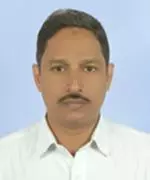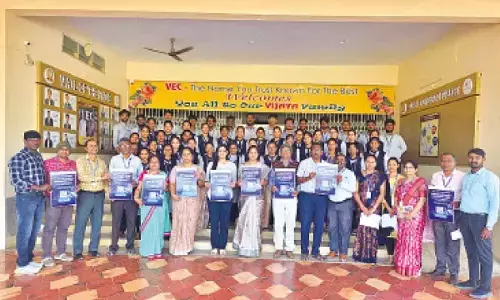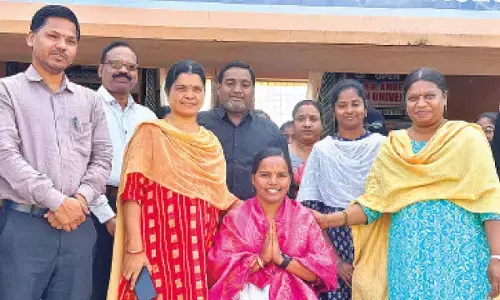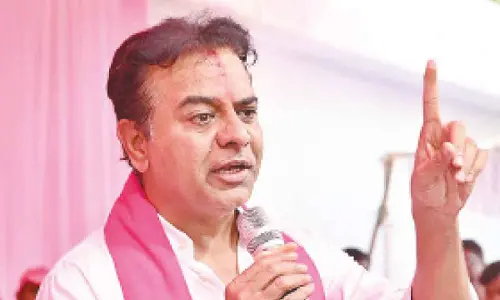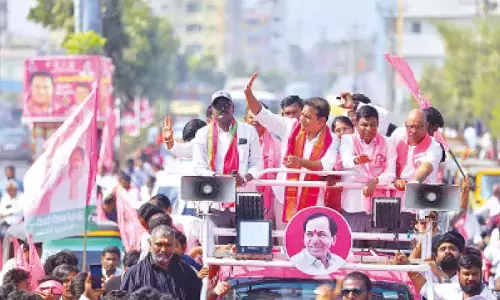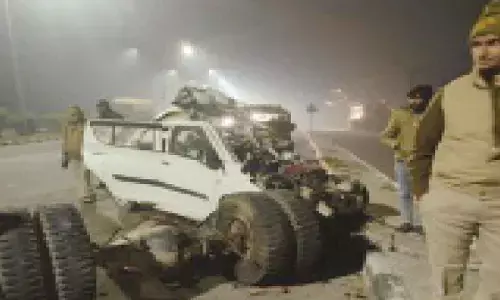NGO boosting literacy levels in Old City
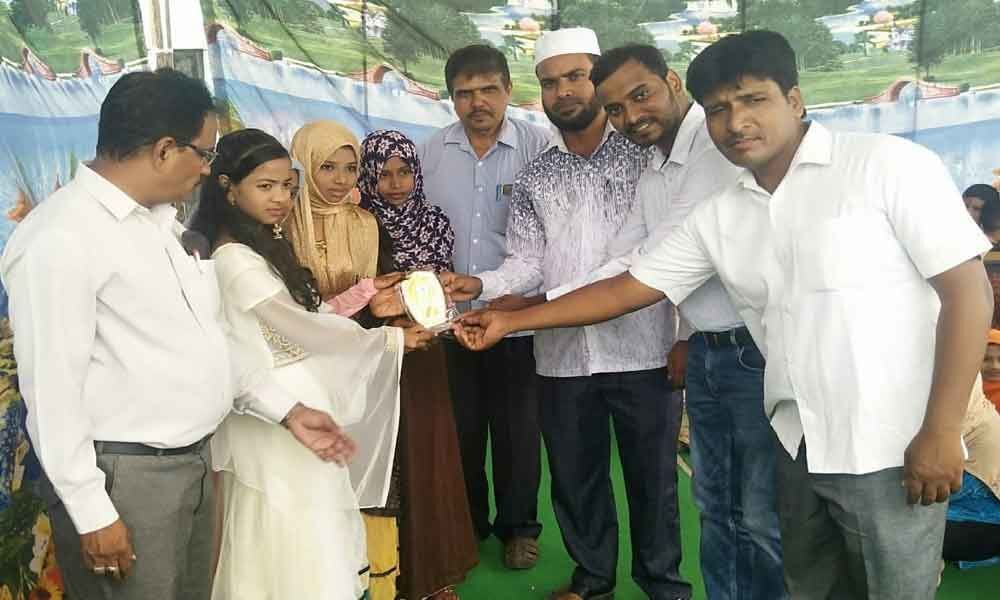
They conducted digital classes, meditation and Yoga, general knowledge, art and craft classes as well as sports activities like indoor and outdoor programmes to stimulate the young minds.
Rajendernagar: The efforts of India Literacy Project (ILP), an NGO, to encourage the literacy rate among poor communities in Rajendernagar is yielding good results, as more and more government schools now coming forward andgranting space required to impart education to the students on par with the corporate schools and to stimulates their minds in order to prepare for the competitive exams the present world demands.
The NGO has adopted Rajendranagar Mandal last year, wherein almost 20 government schools (Upper Primary and High Schools) have been selected to impart training to the students under Multi-Dimensional learning Space (MDLS)programme, which involves science-related activities, digital class as well as career counselling in three phases. For each school one motivator is being appointed to impart training to the students from standard 6thto 10th.
"The essence of the project is to encourage the literacy rate among the poor community who can't afford the education of corporate schools, and thus force to send their wards to government-run schools, whichhave few academic and basic facilities,"said Eprahim, the coordinator at ILP MDLS.
To begin with,the NGOhas taken up summer camps at 3 schools under Rajendernagar area that includes ZPHS Urdu Medium NTR Nagar, Hassan Nagar, ZPHS Ganesh Nagar and ZPHS Attapur of Rajendra Nagar Mandal from April 15 to 30. During the summer camp, around 500 students have taken part in various academic and sports activities.
They conducted digital classes, meditation and Yoga, general knowledge, art and craft classes as well as sports activities like indoor and outdoor programmes to stimulate the young minds. The aim of the NGO is to be a catalyst for 100% literacy in India, and its mission is to empower every individual it serves with functional literacy and an understanding of their basic rights and responsibilities.
The NGO, since its inception, has supported nearly 100 projects across 17 different states of India. "We are working in over 2,200 villages benefitting around 300,000 people. ILP supports education and literacy projects predominantly in the rural and remote areas across various states of India. Our philosophy is to work with people of all agegroups and to empower the local communities," the coordinator at ILP MDLS said.
"At an initial stage, we are getting a good response in Rajendranagar. Both the head masters of the schools and the parents are welcoming our initiative.The children are also showing interest in attending the classes regularly with joy and euphoria," he added.
In 6,00,000 villages, 'free and compulsory education' is the basic literacy instruction dispensed by barely qualified 'Para-teachers'. The average pupil teacher ratio for all India is 42:1, implying a shortage of teachers. Such inadequacies resulted in a non-standardized school system where literacy rates may differ. Furthermore, the expenditure allocated to education was never above 4.3% of the GDP from 1951 to 2002, despite the target of 6% recommended by the Kothari Commission. This further complicates the literacy problem in India.
On the concluding day, a prize distributing ceremony was held at ZPHS in NTR Nagar to felicitate the pupil with awards and certificates to boost their zeal and to take their ambition to the next level. School head master, Prakash, area sabhamember Mohammed Jahanjir and social activist Mohammed Zaheeruddin Khan graced the occasion, while ILP MDLS Coordinator Ephrahim, ILP Motivator Kishore, along with parents participated in the occasion.
Multidimensional learning model
The Multi-Dimensional Learning Space (MDLS) of ILP is a during-school and after-school hour programme that provides multi-dimensional learning opportunities for school children to explore, experiment, discover, and learn in multiple ways.
The concept of schools as multi-dimensional learning spaces is based on equal importance to all aspects of the curriculum, learning not restricted to a curriculum - It should extend to help holistic and balanced development of a child, no one learning style for all - learning should involve visual, auditory and experiential methods and learning can happen anywhere and anytime.
The vision of schools as MDLS is to offer a wide variety of academic inputs and non-academic exposure to children, so that they do well not only in studies, but also in discover their interests and abilities. Through this, the NGO hopes to bring about individuals who are capable, confident, inquisitiveness and value aware, Eprahim said.
"We are planning to implement STEM (Science, Technology, Engineering and Math) in all the high schools through involving School Management Committees to strengthen the students, as per RTE act for 2019-20. STEM is aiming to equip the school with technology to encourage girls who are willing to take science groups," he added.

